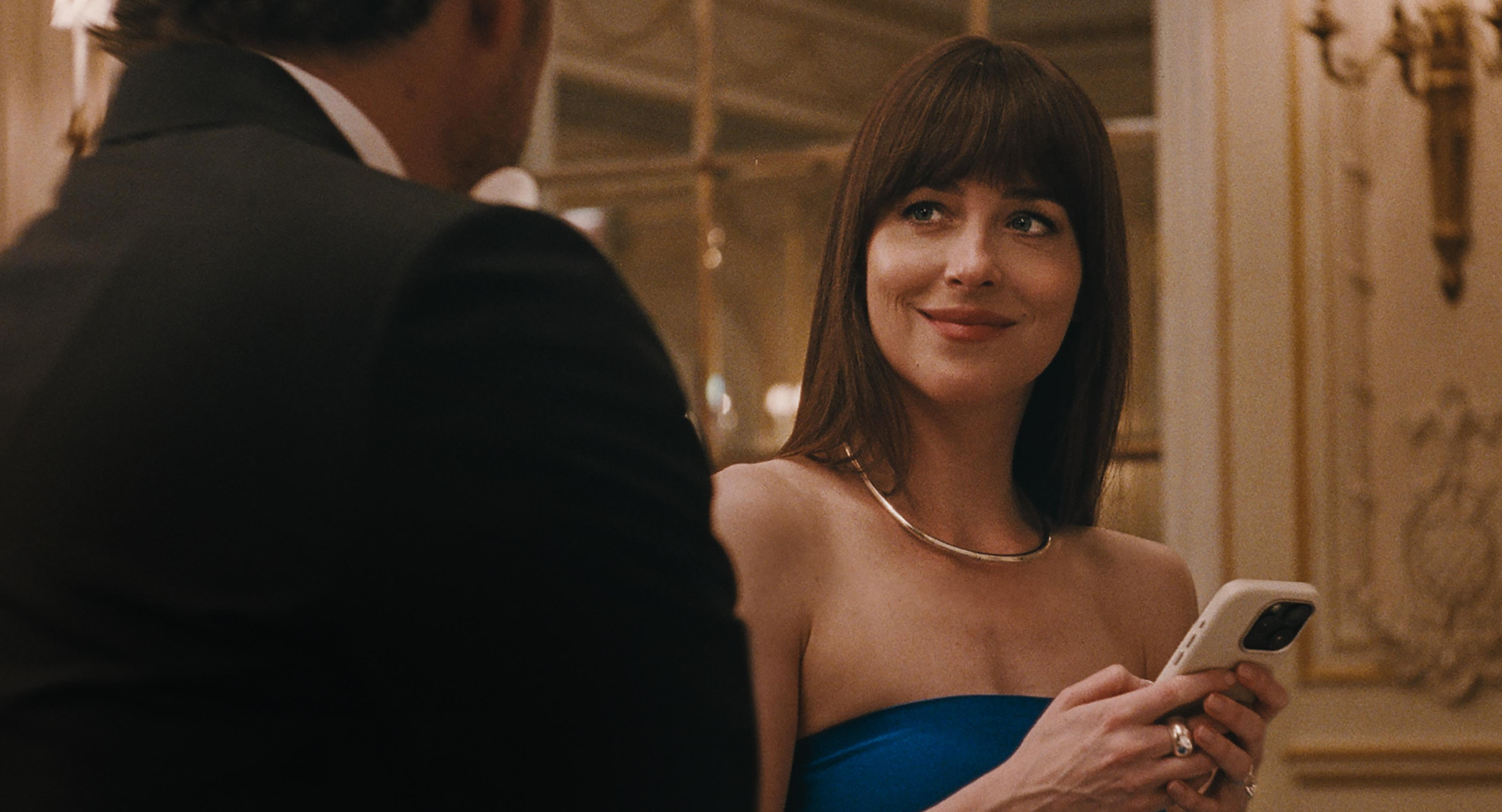Materialists – Film Review
Published June 11, 2025

Celine Song’s Materialists arrives as a stylish, whip-smart romantic comedy that digs deeper than the genre’s glossy surface might suggest. Written and directed by Song, whose previous film Past Lives captured hearts with its delicate touch on nostalgia and fate, Materialists ventures into the intricate dance between love and wealth in modern-day New York. While the film sometimes stumbles under the weight of its own ambitions, it’s elevated by a trio of magnetic performances and Song’s sharp, perceptive writing.
The big question Materialists asks is can love truly flourish when financial insecurities cloud the horizon? Dakota Johnson stars as Lucy, a former actress turned successful matchmaker at a firm aptly named Adore. With nine successful marriages to her credit, she’s clearly good at what she does—except, perhaps, when it comes to her own heart. Lucy’s insistence that she will only marry a wealthy man is both a shield and a guiding principle. Her rule is tested when she finds herself in a triangle of sorts between Harry (Pedro Pascal), a charismatic financier, and John (Chris Evans), her financially struggling but emotionally rich ex-boyfriend.
The film’s setup is both charming and cutting. Song uses Lucy’s job at Adore as a canvas to explore the transactional nature of modern dating, and the corporate polish of the matchmaking world gives the film a satirical bite. Yet, Materialists is less interested in taking down the institution of matchmaking than it is in exploring how its heroine navigates the push and pull between her ideals and her heart’s true desires.
Dakota Johnson delivers one of her most compelling performances in recent memory. She embodies Lucy with a perfect blend of dry wit and vulnerability. Johnson’s nuanced portrayal captures the contradictions of a woman who can arrange love for others with cool precision but struggles to find her own footing. Chris Evans, as John, brings a gentle, almost wistful charm to the role, showing once again his knack for playing the guy-next-door with an undercurrent of passion. Pedro Pascal’s Harry Castillo is a suave, intriguing presence, whose easy confidence belies a quiet yearning for genuine connection.
The supporting cast also shines, particularly Zoë Winters as Sophie, a middle-aged Adore client whose tragicomic journey adds emotional heft to the film’s latter half. Marin Ireland, as Lucy’s boss Violet, brings a sardonic edge to the role, reminding Lucy (and the audience) of the business side of matchmaking, even as real people’s feelings hang in the balance.
Where Materialists truly sparkles is in its dialogue. Song writes conversations that crackle with intelligence and humor. Lucy’s banter with Harry in upscale restaurants and her intimate, bittersweet reunions with John are among the film’s highlights. These scenes reveal not just the surface dynamics of romance but also the economic underpinnings that shape modern relationships. The film is at its best when it explores how money—or the lack thereof—can influence power dynamics, self-worth, and, ultimately, love itself.
However, the film’s structure occasionally undercuts its impact. At times, the screenplay feels overstuffed with subplots—Lucy’s matchmaking clients, Harry’s business deals, John’s acting career—each of which could have used more time to breathe. The assault subplot involving Sophie, while important in illustrating the dangers of matchmaking, feels somewhat abrupt and heavy-handed, momentarily shifting the film’s tone from breezy rom-com to cautionary tale without fully integrating the two.
Song and cinematographer Shabier Kirchner craft a lush, romanticized New York City that feels both lived-in and dreamlike. From candlelit dinner tables to Central Park strolls, the film captures the city’s irresistible blend of magic and grit. The production design subtly reflects Lucy’s evolution: her polished, minimalist apartment early on gives way to messier, cozier spaces as she begins to confront her own vulnerability.
One of the film’s most interesting elements is its examination of transactional relationships, not just in romance but in friendship, work, and even self-worth. Lucy’s career is built on the promise of love as a commodity, something that can be curated and sold. Song uses this backdrop to question how modern society commodifies intimacy and whether authenticity can survive in a world where everything has a price tag.
The film also gently probes the idea of female ambition. Lucy’s initial insistence on marrying rich is never simply shallow; it’s a survival strategy in a world where financial instability often falls hardest on women. Yet, the film stops short of fully unpacking the complexities of her choice, leaving some of its most compelling ideas only partially explored.
Without spoiling any major developments, Materialists delivers a finale that is both satisfying and true to its themes. The film doesn’t shy away from the messiness of love, acknowledging that even the most carefully planned relationships can’t escape the unpredictability of human hearts. The ending feels earned—neither too neat nor too bleak—and provides a satisfying emotional payoff for Lucy’s journey.
Materialists isn’t a perfect film—it’s a bit too busy at times, and some subplots could have been streamlined for greater impact. But its charms far outweigh its flaws. Thanks to Song’s insightful writing, Dakota Johnson’s layered performance, and a pair of charismatic leading men, the film manages to balance sharp wit with genuine emotional depth.
If you’re looking for a romantic comedy that dares to ask serious questions about love, money, and the messy ways they intersect, Materialists is worth the investment. It’s a testament to the idea that sometimes the most meaningful connections come not from algorithms or wealth, but from the courage to be honest—both with ourselves and with the ones we love.
